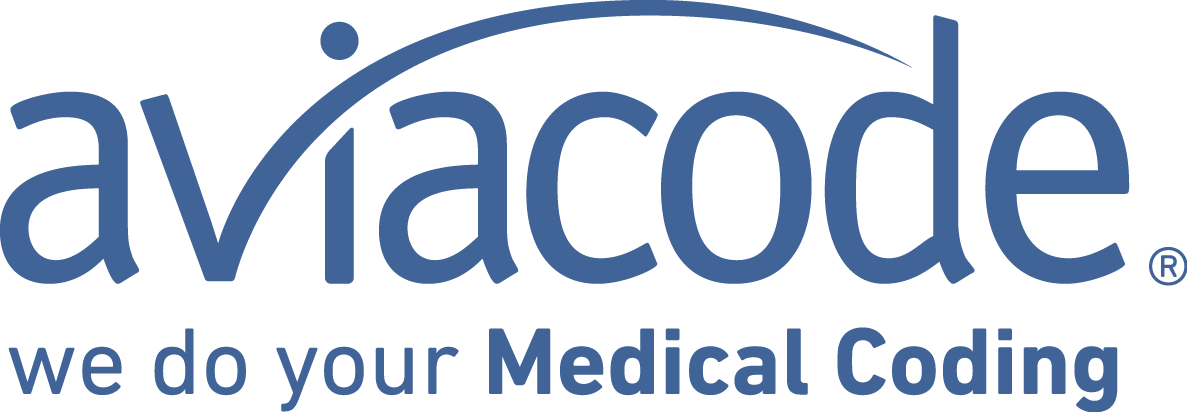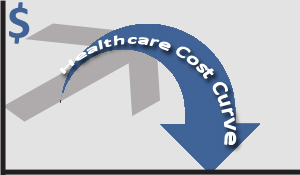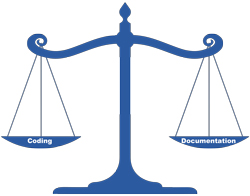A report from the U.S. Department of Health and Human Services' Office of Inspector General (OIG) earlier this month found improper physician coding of stroke patients who were transferred from traditional Medicare to Medicare Advantage, which led to overpayments of an estimated $14.4 million. The OIG found nearly all of the selected acute stroke diagnosis codes that physicians submitted to CMS under traditional Medicare that CMS later used to make payments to Medicare Advantage organizations didn't comply with federal requirements.
Read More
Topics:
Medical Coding,
Medical Coding Audits,
Pro-Fee Coding,
Outpatient Coding,
COVID-19
While hospital financial performance is starting to recover after experiencing historic lows at the start of the COVID-19 pandemic, providers still face a bumpy road ahead, according to experts at Kaufman Hall. Comparing July 2020 to June 2020, hospital operating margins increased 24 percent. Operating EBITDA margins also increased by 12 percent month-over-month and were 9 percent above budget without the financial aid despite falling by 5 percent year-over-year, the firm reported.
Read More
Topics:
Medical Coding,
Pro-Fee Coding,
Facility Coding,
Outpatient Coding,
COVID-19
The U.S. Department of Health and Human Services Office of the Inspector General (OIG) recommended earlier this month that the U.S. Centers for Medicare & Medicaid Services (CMS) should recoup the portion of nearly $1 billion that was incorrectly paid to hospitals because of medical coding and billing errors involving severe malnutrition diagnosis codes in FYs 2016 and 2017.
Read More
Topics:
ICD-10,
Medical Coding,
Clinical Documentation,
Medical Coding Audits,
Pro-Fee Coding,
Facility Coding,
Outpatient Coding
Last month, the United States Court of Appeals for the Fifth Circuit affirmed a lower district court decision to dismiss a False Claims Act lawsuit brought against a Texas-based hospital system. The lawsuit by a data analytics firm accused the health system of fraudulently using secondary diagnosis codes to increase its revenues over a six year period.
Read More
Topics:
ICD-10,
Medical Coding,
HCC Coding,
Pro-Fee Coding,
Facility Coding,
Outpatient Coding
More than 10 million COVID-19 laboratory tests have been conducted in the United States thus far. While the US testing per capita rate still lags behind several other countries, the number of tests completed continues to rise. These tests are medical coded and reimbursed just like other medical procedures. The CPT codes announced in March and April when testing became prevalent in the United States now have associated Medicare MAC payment rates.
Read More
Topics:
ICD-10,
Medical Coding,
Pro-Fee Coding,
Facility Coding,
Outpatient Coding,
COVID-19
Telehealth usage is skyrocketing during this COVID-19 pandemic, as the way people interact with each other and their healthcare providers change. The increased demand in remote video technology, or in its absence telephony, for clinical interactions has led to changes in how providers offer patient care, as well as led to changes in reimbursement policies enacted and enforced by the federal government.
Read More
Topics:
ICD-10,
Medical Coding,
Pro-Fee Coding,
Facility Coding,
Outpatient Coding,
COVID-19
The medical coding industry before COVID-19 made it easy for you. If you were outsourcing it was simply domestic versus global. Fast forward to this COVID-19 pandemic, the healthcare industry has been flipped on its head. Hospitals are expecting a surge in demand with an increasing number of testing, triage and positive COVID-19 patients needing hospitalization. This in the face of a short supply of hospital beds, ICUs, and ventilators, as well as temporary facilities being added as fast as possible. Medical coding is facing similar challenges to meet this growing demand.
Read More
Topics:
ICD-10,
Medical Coding,
Pro-Fee Coding,
Facility Coding,
Outpatient Coding
A recent article in ICD10 Monitor reported that a national coding contest held annually found outpatient coding in 2019 had the worse coding accuracy in the past three years. Central Learning has held this coding contest since 2016.
Read More
Topics:
ICD-10,
Medical Coding,
Pro-Fee Coding,
Outpatient Coding
A recent Becker's Hospital Review article highlighted healthcare's significance in the American economy. In that, healthcare accounts for more than 17 percent of the nation's gross domestic product, employs more people than any other industry in the nation, and venture capital alone invested more than $23 billion in healthcare in 2018. The article points out that despite these massive investment and the efforts of a talented workforce, many of the nation's hospitals and health systems operate on razor-thin operating margins and face the dual challenge of achieving fiscal sustainability while delivering high quality care to patients.
Read More
Topics:
ICD-10,
Revenue Cycle Management,
Medical Coding,
Pro-Fee Coding,
Facility Coding
A recent Forbes article entitled “Physician Documentation And Coding: The Third Rail?” showcased the potential missed opportunities to fully understanding the correlation between physician documentation and coding and their resulting effects. Whereas patients may interpret documentation as a doctor providing an account of your visit in your medical record, providers have a far greater impact with documentation. Documentation and coding can affect revenue, quality of care, and potentially expose providers to legal compliance consequences.
Read More
Topics:
ICD-10,
Medical Coding,
Coding Compliance,
Pro-Fee Coding,
Facility Coding












